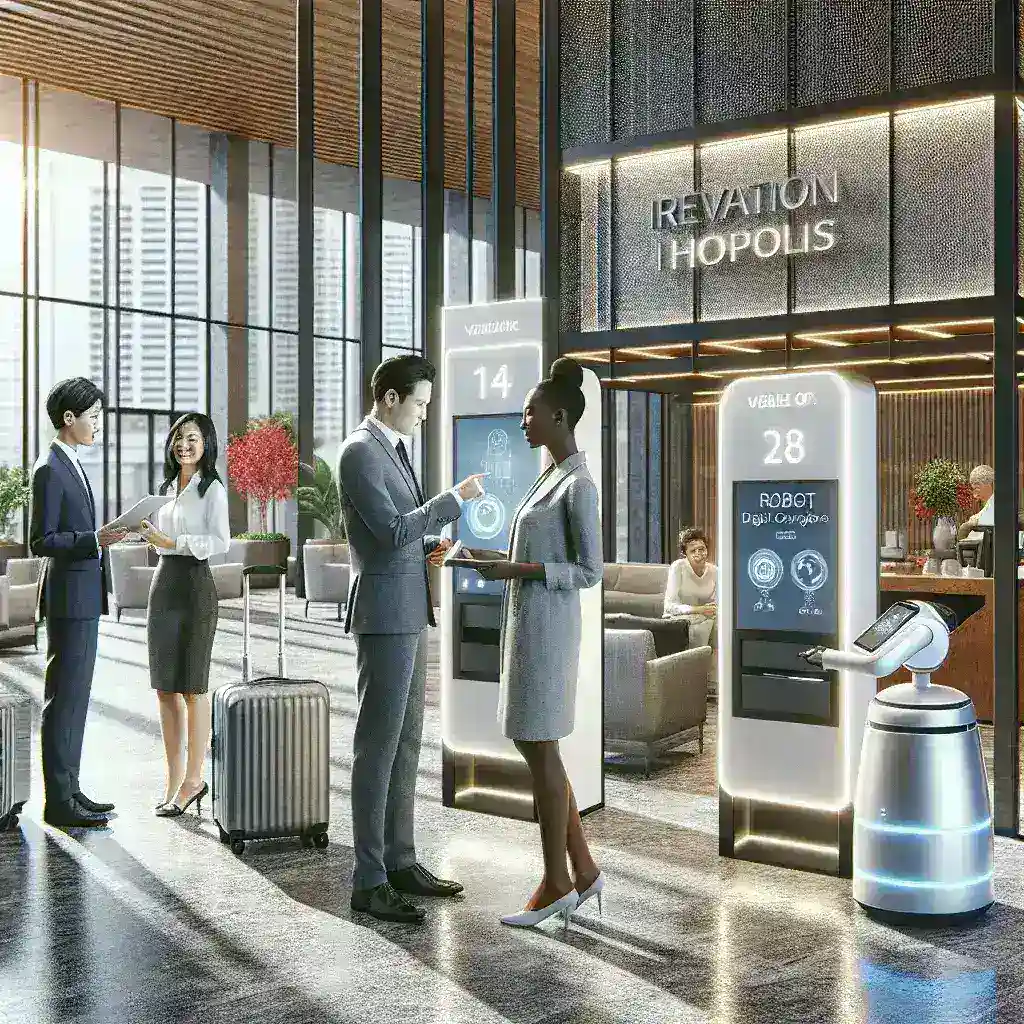The hospitality industry is undergoing a significant transformation fueled by rapid technological advancements. From Artificial Intelligence (AI) to mobile apps and the Internet of Things (IoT), technology is playing a pivotal role in reshaping how hospitality businesses operate and interact with their guests. This article delves into various ways technology is revolutionizing the hospitality sector.
1. Enhanced Guest Experience
One of the key areas where technology is making a monumental impact is in enhancing the guest experience. Hotels and resorts are leveraging technology to offer personalized experiences that resonate with their guests.
Personalized Services
Thanks to AI and machine learning, hospitality companies can analyze guest data to offer customized services and recommendations. For instance, AI algorithms can identify a guest’s preferences for room settings, dining choices, or even local attractions, thus tailoring the experience to each individual’s taste.
Virtual Concierge Services
Chatbots and virtual assistants have become ubiquitous in the hospitality industry. These virtual concierges can handle a range of tasks, from answering frequently asked questions to booking reservations and even suggesting personalized activities, thus freeing up human staff to focus on more complex tasks.
2. Operational Efficiency
Technology is not just enhancing guest experiences; it’s also making operations more efficient. Automated systems and smart technologies are streamlining various aspects of hotel management.
Automated Check-In and Check-Out
Long gone are the days of standing in long queues to check in or out of a hotel. Self-service kiosks and mobile apps now allow guests to complete these processes quickly and effortlessly. This not only saves time but also reduces staffing requirements, making operations smoother and more cost-effective.
Smart Room Technology
The integration of IoT in hotel rooms is another game-changer. Guests can now control lighting, temperature, and even entertainment systems through their smartphones or voice-activated devices like Amazon’s Alexa. This offers unparalleled convenience and elevates the guest experience.
3. Data-Driven Decision Making
In the era of Big Data, the hospitality industry is leveraging data analytics to make informed decisions. Data-driven insights can help in various domains, from marketing strategies to customer service improvements.
Revenue Management
Advanced revenue management software can analyze a plethora of data points to predict demand and optimize pricing strategies. This ensures that hotels can maximize their revenue while offering competitive rates to guests.
Customer Feedback Analysis
Analyzing customer reviews and feedback has never been easier, thanks to AI-powered sentiment analysis tools. These tools can sift through vast amounts of data to gauge customer satisfaction levels and identify areas requiring improvement.
4. Streamlined Communication
Effective communication is crucial in the hospitality industry, and technology is making it more seamless than ever.
Unified Communication Systems
Unified communication systems integrate various communication channels—emails, instant messaging, and phone calls—into a single platform. This ensures that staff can communicate effortlessly, thus enhancing coordination and efficiency.
Real-Time Updates
Mobile apps are increasingly being used to provide guests with real-time updates. Whether it’s informing guests about their room status, upcoming events, or personalized offers, real-time communication builds a stronger connection between the hotel and its guests.
5. Sustainable Practices
Technology is also driving sustainability in the hospitality industry. Eco-friendly innovations are helping hotels reduce their environmental footprint while cutting down on operational costs.
Energy Management Systems
Smart energy management systems can monitor and control energy consumption, optimizing the use of resources. For example, sensors can detect when a room is unoccupied and adjust lighting and temperature settings accordingly, leading to significant energy savings.
Waste Reduction
IoT-enabled waste management systems can track waste levels and optimize collection schedules, reducing the environmental impact. Additionally, digital solutions can minimize the use of paper by promoting e-receipts and digital menus.
Conclusion
The transformation in the hospitality industry brought about by technology is profound and far-reaching. From enhancing guest experiences to improving operational efficiency, data-driven decision-making, streamlined communication, and sustainable practices, technology is proving to be a catalyst for positive change. Hotels and resorts that embrace these technological advancements are not only staying ahead of the curve but also setting new standards in hospitality excellence.

